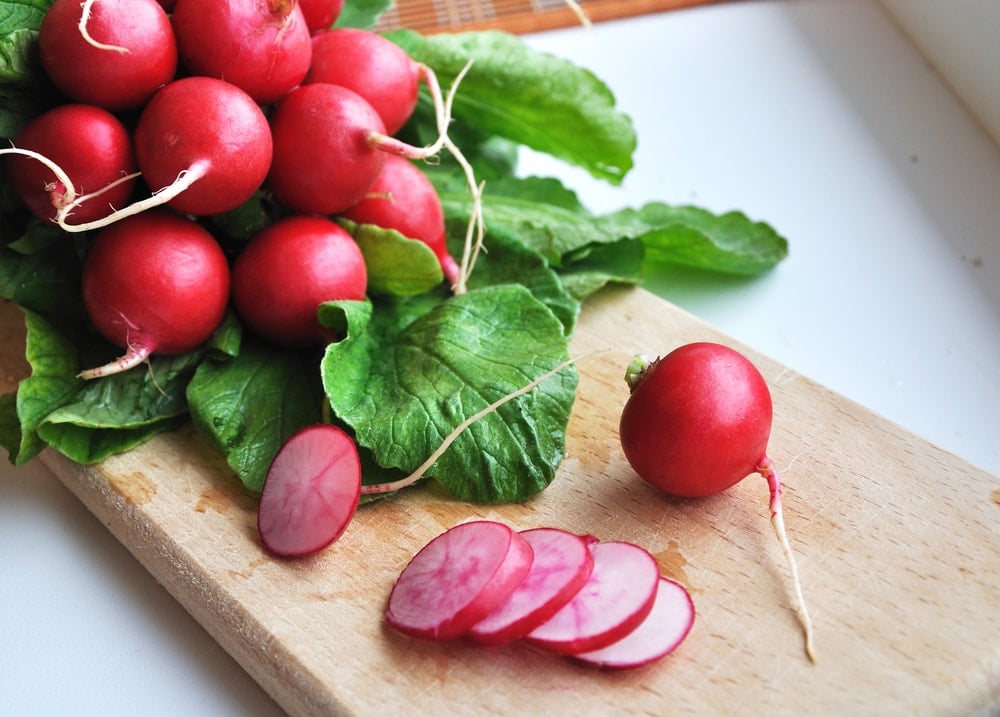Radishes in a Gout Diet
Gout occurs when the uric acid crystals are deposited into the joints or the soft tissues, which leads to inflammatory arthritis, making the joints suffer from intense pain, swelling and sometimes you can experience joint stiffness. Purines are natural substances which can be found in most of the foods we eat and are naturally present in the body; but there are certain foods that have higher of purines compared to others.
If purines accumulate to excessive levels in the body, it will elevate the levels of uric acid in the body, since uric acid is a result of the breakdown of purines in the body and it is the crystallization of excess uric acids that exacerbates your gout condition.
About Radishes
It goes without saying that if you are suffering from gout, then you have to avoid foods with high levels of purines. Many are the foods that have been proposed as low purine foods and are thus recommended for gout sufferers. Most of these foods are either low in purines or they may help the kidneys in removing excess uric acid from the blood, preventing the formation of uric acid crystals. Radishes happens to be one of the highly recommended foods that may help people suffering from gout.
A Low Purine Food
Radishes is one of the commonly overlooked vegetables, but one with wonderful healing properties. It is a root-like vegetable of the cruciferous variety and it is packed with vitamins, mineral and phytonutrients highly needed by the body. There are many varieties of radishes you can potentially choose from, but in Canada and the United States, the following are some of the common types you will encounter at the grocery stores:
- White Beauty – this is small and round radish which is white, both on the inside and outside. It is sweet and very juicy.
- Rat Tail – the rat tail variety is tasty and crunchy. It has the reputation of tolerating hot weather, resisting pests and it never forms bulbs. As such, it is ideal for growing at home gardens by anyone.
- French Breakfast Radish – this mild and extra crunchy. It can be eaten raw or cooked and may sometimes have a slightly pungent smell.
- Daikon Long White – this is one of the hugest varieties and can measure up to 3 inches in diameter and up to 18 inches long.
- Cherry Belle – it’s round in shape and reddish and the most common variety at the local supermarkets.
Radishes makes it to the list of preferred veggies for gout sufferers simply because it is a low purine food and no matter how much of it you take, you can never risk the production of excess uric acid which will lead to crystallization at the joints and ultimately making way for gout attacks.
Health Benefits of Radishes
In addition to being a low purine food, radishes are instrumental in gout management because of the role they play in kidney health. It is always the responsibility of the kidneys to get rid of toxins and other wastes from the body. When there is excess purines in the body, it is normally expected that the kidneys will help get rid of them, thus not giving chance to the formation and crystallization of excess uric acid. But when the kidneys fail to do this, flare-ups will be imminent.
Radishes are very powerful in flushing the kidneys to prevent the formation of kidney stones and gallstones, thus improving the overall health of the kidneys, making it more effective in carrying out its duty of removing toxins from the body. Radishes are also very helpful in treating kidney and gallbladder ailments. The other health benefits of radishes include but are not limited to the following:
- Great source of vitamin C
- Helps in regulating blood pressure, preventing respiratory problems such as bronchitis and asthma and they also help in relieving congestion
- The fibers, vitamins and minerals it has makes it a favorite for cardiovascular health. They can also lower cholesterol and help in managing diabetes
- Helps in digestion and detoxification
- Can help in the fight against various forms of cancer
How to get the most out of radishes if you are suffering from gout
There is numerous ways to prepare radishes or enjoy some of its tasty combinations. But one of the easiest and the most preferred ones is to savor the radishes when they are raw, sliced in salads or by eating them in conjunction with less tasting greens such as dandelion, greens, romaine or lettuce. It is easy to grow them on your own and since they are not very demanding in terms of climatic requirement, they are one of the fastest growing foods you could have in your home garden. Whatever you do, make sure to include some radishes in your gout diet.
